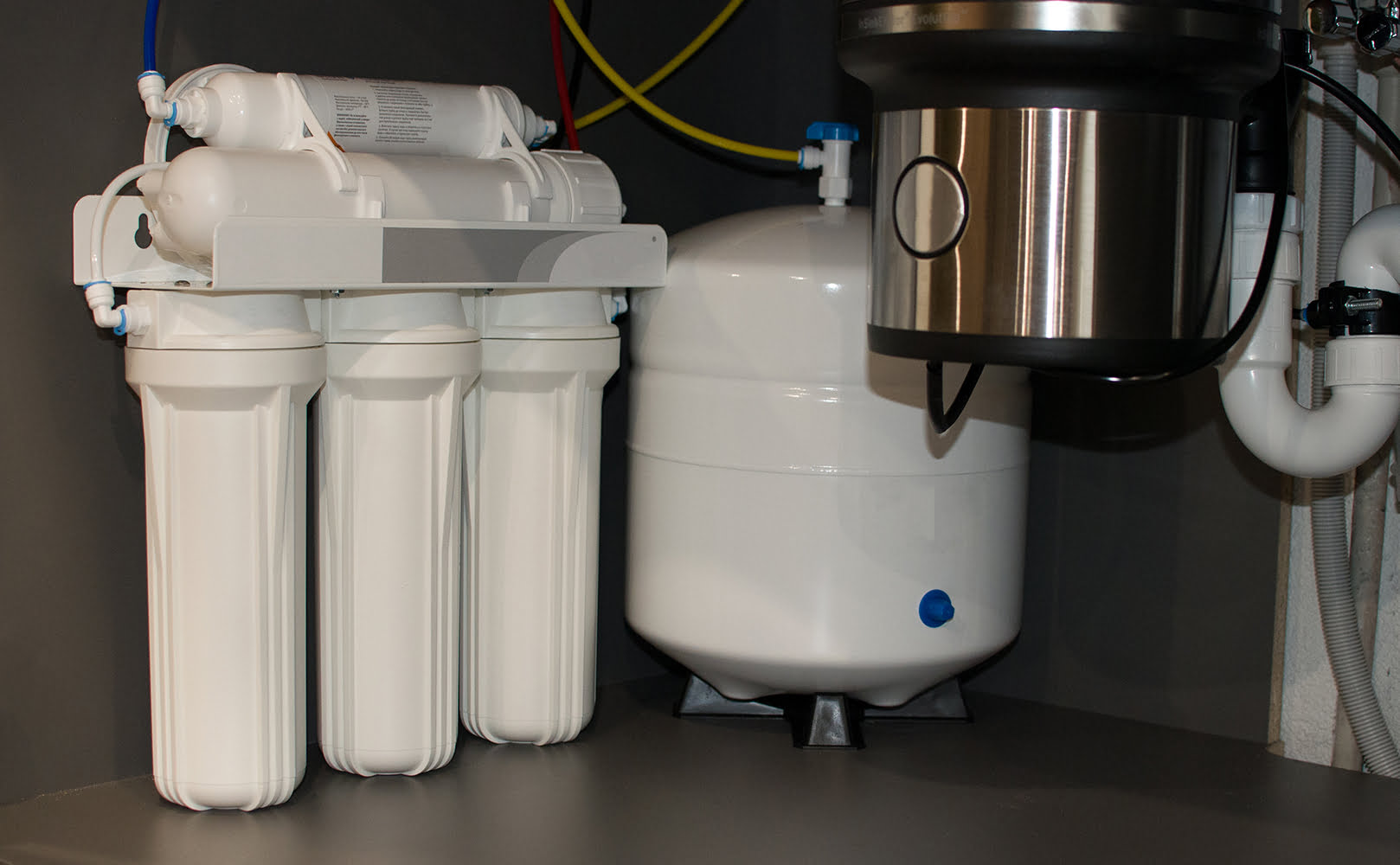Does Reverse Osmosis Remove Bacteria and Viruses? Find Out Here!
Written by: Alexandra Uta // Last Updated: Apr 20, 2023
This page may contain affiliate links. If you buy a product or service through such a link we earn a commission at no extra cost to you. Learn more.
We go to such great lengths to avoid exposure to disease-causing bacteria and viruses these days.
From masks to hand sanitizer to frequently washing our hands, no one wants to be exposed to something that could potentially make them ill.
So why do we not usually consider our household water supply as a potential vector for carrying diseases? Because it can. From Legionella to the virus that causes the common cold, it may be lurking in your drinking water.
Want to make sure you get rid of it? Let’s see how!
Key Takeaways
- Reverse osmosis is very effective at removing bacteria and viruses from water.
- However, most reverse osmosis systems for home use are designed to work with biologically-safe water and may not function effectively long-term with highly contaminated water.
Does Reverse Osmosis Remove Bacteria and Viruses?
Does reverse osmosis remove bacteria and viruses from water?
Yes, reverse osmosis is effective at removing both bacteria and viruses from water.
However, it is essential to note that most reverse osmosis systems for home use were designed to work with biologically-safe water, not water that is heavily contaminated with waterborne pathogens. As such, it is possible that using a reverse osmosis filter system with biologically-unsafe water can lead to the accumulation of pathogens on the RO membrane, which can cause it to degrade over time and render it ineffective.
Effectiveness
Reverse osmosis can remove up to 99.9% of bacteria and viruses from water, but again this is the level for biologically-safe water. Adding a UV water purifier to your RO system if you have a considerable amount of bacteria or viruses in the water would be a more effective and safer solution.
How Does Reverse Osmosis Remove Bacteria and Viruses?
Reverse osmosis systems filter water by pushing it through their semipermeable RO membrane. This membrane has a pore size of around 0.0001 microns. The average size of a bacteria, however, is 1-2 microns. And even viruses which are much smaller are still around 0.01-0.3 microns in size.
This means that bacteria and viruses are way too big to pass through a reverse osmosis membrane and into the filtered water.
Common bacteria that an RO system will remove include campylobacter, shigella, salmonella, and E. coli, and common viruses it removes are hepatitis A, rotavirus, and norovirus.
Does Reverse Osmosis Kill Bacteria and Viruses?
While reverse osmosis is highly effective at removing bacteria and viruses from water, it does not kill them; it simply rejects them. They are then flushed alive from the system and down the wastewater drain.
If you wish to kill bacteria and viruses, then you would need something like a UV water purifier. These use UV light to scramble the DNA in microorganisms, essentially killing them.
Other methods to kill certain bacteria and viruses in water include chemical treatment, boiling, and distillation.
Types of Bacteria Present in Water Supplies
Common bacteria found in tap water include
- coli,
- Fecal coliforms,
- Campylobacter jejuni,
- Pseudomonas aeruginosa,
- Listeria,
- Shigella,
- And salmonella.
These bacteria can cause health issues such as gastrointestinal distress, hepatitis, and typhoid.
Types of Viruses Present in Water Supplies
Common viruses found in our water supplies these days include
- Enterovirus,
- Norovirus,
- Adenovirus,
- Rotavirus,
- And hepatitis A.
These viruses can cause gastrointestinal illnesses and issues, as well as respiratory problems, headaches, and fever.
Rotavirus, in particular, is the leading cause of diarrhea in children, and with all viruses, children, the elderly, and the immunocompromised are most at risk of developing severe symptoms.
Adenovirus is primarily present in groundwater and is, therefore, quite common in well water.
What Else Does a Reverse Osmosis System Remove?
Along with bacteria and viruses, reverse osmosis systems will remove
- Heavy metals
- Chlorine and chloramine
- Disinfection byproducts
- Pesticides and herbicides
- Sediment, silt, and rust
- VOCs
- Minerals and salts
- Protozoa
- Radioactive elements
- Most kinds of organic chemicals
Other Ways to Remove Bacteria and Viruses from Water
While reverse osmosis effectively removes contaminants from water, there are better ways to eliminate waterborne viruses and bacteria.
- UV water purification systems are one of the best ways, especially if you have water that may contain cryptosporidium or giardia, which are chlorine-resistant. Often, UV purification is used alongside RO water purification. Essentially, you add a UV filter stage to your existing reverse osmosis system (usually downstream of the RO membrane). The UV light kills any microorganisms that might have made it past the RO process.
- Chemical treatment (such as shock chlorination) is another effective method for killing bacteria and viruses, but it can create toxic byproducts in the water that may be unsafe for drinking. This is precisely the same method used by public utilities to disinfect their water. Chlorine and chloramine are most often used here.
- Water distillation will kill any bacteria and viruses in water, as will boiling, but this can be time-consuming and expensive. When distilling water, you heat it until it starts to evaporate. The water steam leaves any impurities behind. It cools down in a cooling coil and later collects in a separate container.
If you have any thoughts about the question, does reverse osmosis remove bacteria and viruses, please don’t hesitate to leave a comment below!
Information provided on BOS is for educational purposes only. The products and services we review may not be right for your individual circumstances.
We adhere to strict editorial guidelines. Rest assured, the opinions expressed have not been provided, reviewed, or otherwise endorsed by our partners – they are unbiased, independent, and the author’s alone. Our licensed experts fact-check all content for accuracy. It is accurate as of the date posted and to the best of our knowledge.



